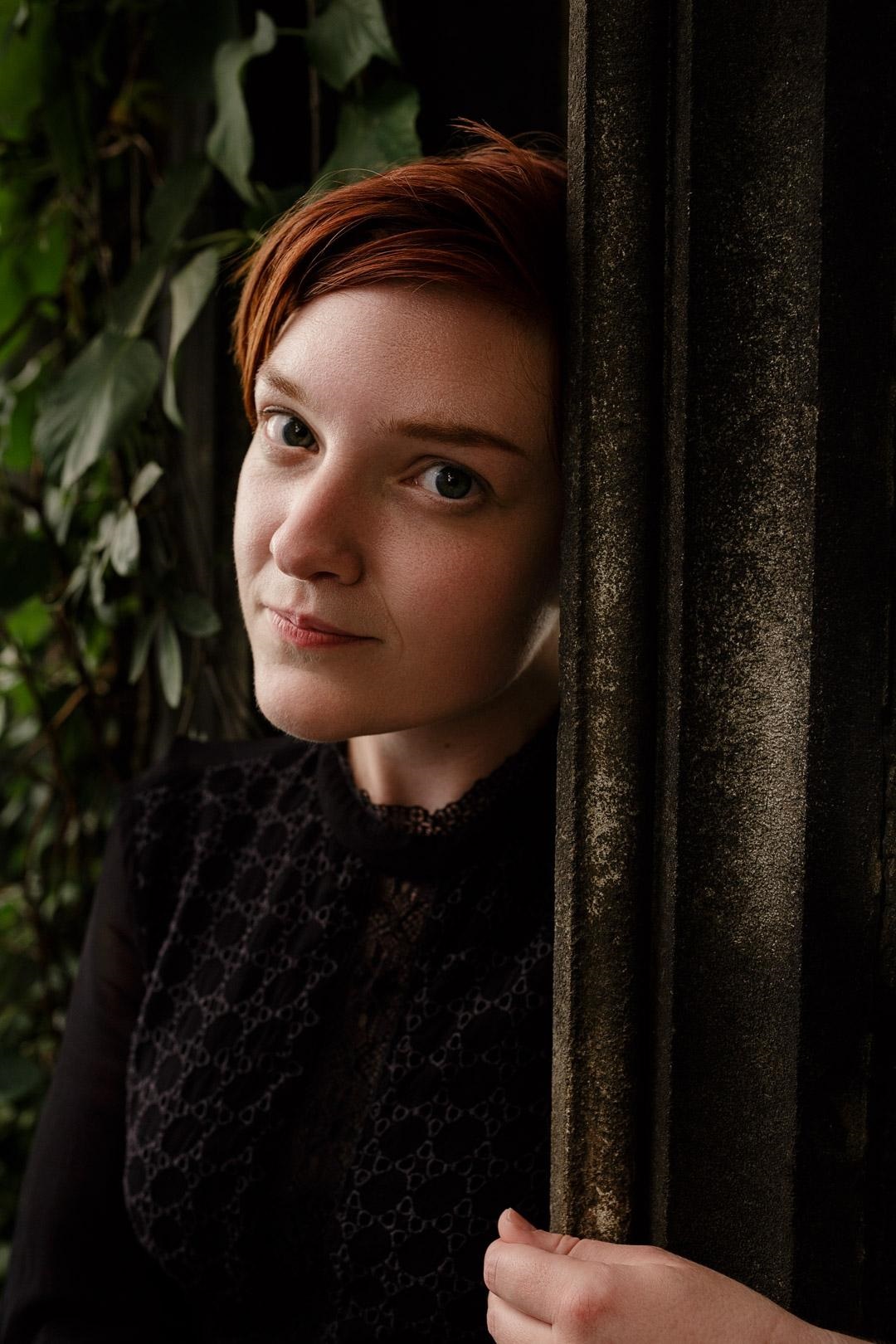 |
| photo: Jamie Drew |
Natasha Pulley is the author of the historical fantasy novels The Watchmaker of Filigree Street, The Bedlam Stacks and The Lost Future of Pepperharrow (Bloomsbury, February 18, 2020). She lives in the U.K. and works as a lecturer in creative writing.
On your nightstand now:
MaddAddam by Margaret Atwood. I love post-apocalypse stuff anyway, but Atwood is just excellent at it; even though the subject matter is dark, the writing is always hugely funny.
Favorite book when you were a child:
Redwall by Brian Jacques. It's about talking mice who live in an abbey in the woods. Kids' books are usually short, but the Redwall books are big and sprawling and immersive, and they plunge you into the natural world in a way that's stuck with me ever since. I still love mice.
Your top five authors:
Robin Hobb, Neil Gaiman, Robert Harris, Daphne du Maurier, Shirley Jackson.
Book you've faked reading:
I honestly never have! I'm not clever enough to fake it. I have actually read Ulysses. I hated it and I wish I had a time machine so I could hit James Joyce with a wet fish, but I did finish it.
Book you're an evangelist for:
Rebecca by Daphne du Maurier. It's the best book I've ever read. It's so immensely clever; you think it's a silly book about a silly girl who enters into a silly marriage, but really it's a devilishly good investigation into toxic masculinity, toxic femininity, the nature of jealousy, culpability and victimhood; du Maurier was decades ahead of her time. She's one of the most misconstrued writers I've ever come across. She's often written off as a writer of light romance; but today, she'd win the Booker.
Book you've bought for the cover:
The Binding by Bridget Collins. It's incredibly beautiful.
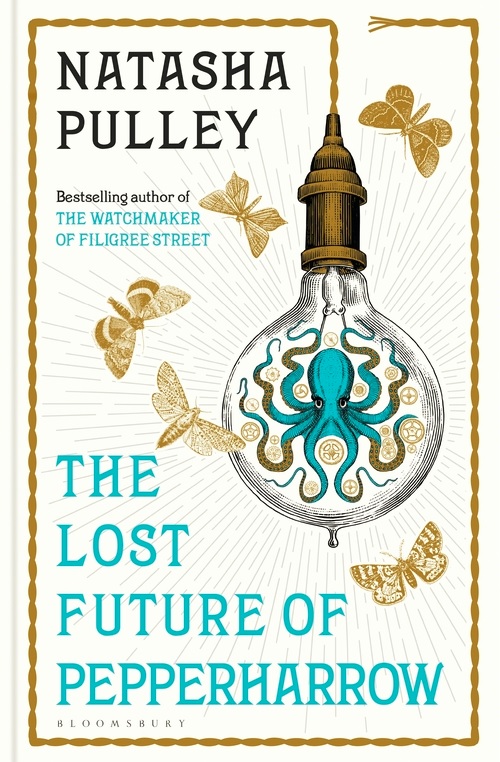 Book you hid from your parents:
Book you hid from your parents:
Brokeback Mountain by Annie Proulx. I read it when I was really young and I felt crazy guilty about owning a book that involved any sex whatsoever.
Book that changed your life:
The Exorcist by William Peter Blatty. I'd seen the film by the time I read the book, and was totally underwhelmed; watching it now, it's not very scary, just gross. But the book is something else. As well as being extremely creepy, it's a beautiful insight into the seminary and priesthood, and the way his vows affect all the relationships that Father Karras has. That contrast between the horror of Regan's possession, and the love and compassion that characterise Father Karras, is something I've been trying to imitate ever since I finished the book.
Favorite line from a book:
'And she, whom once the semblance of a scar
Appall'd, an owlet's larum chill'd with dread,
Now views the column-scattering bay'net jar,
The falchion flash, and o'er the yet warm dead
Stalks with Minerva's step where Mars might quake to tread.'
I don't usually much like Byron, but this is from Childe Harold's Pilgrimage and it's had a seismic influence on the way I write. It's about Spanish women during the Napoleonic Wars; they start out like you might expect women to in the early 1800s, meek and easily shaken, but by the end, they don't give a damn about walking the battlefields while explosions are still going off. I quite want to stamp this onto the forehead of anyone who says historical women are all fainting fragile idiots.
Five books you'll never part with:
The Tale of Genji by Shikibu Murasaki--this is huge, and I can only read it in translation, but it's gorgeous; compelling, romantic, creepy and all from over a thousand years ago in Japan. I think it proves that humans are always humans wherever and whenever they are.
Conclave by Robert Harris--I can't think of another writer who could make an extremely complicated papal election into thriller, but Harris does it, and it's fantastic.
The Fool's Errand by Robin Hobb--forget Game of Thrones. This is fantasy at its absolute best.
The Birds and Other Stories by Daphne du Maurier--everyone thinks Alfred Hitchcock came up with The Birds; he did not! It was Her Majesty Queen Daphne.
Dark Matter by Michelle Paver--the best ghost story I've ever read. An Arctic expedition of five men sets out, and before too long, only one remains. The main character is a telegraphist, which I stole for Watchmaker and Pepperharrow. Thaniel Steepleton is based on him.
Book you most want to read again for the first time:
Jane Eyre. I read it too young, when I was just starting at university; I didn't understand just how brilliant it is. I cruised along for years not realizing that Mr Rochester is hysterically funny. That moment when he tries to fool Jane into thinking he's sending her to Ireland just to see if he can get her to tell him her feelings before he ventures his own--it's a fantastic piece of writing, full of cowardice and love and a kind of wonderful brittleness that laces the whole book.
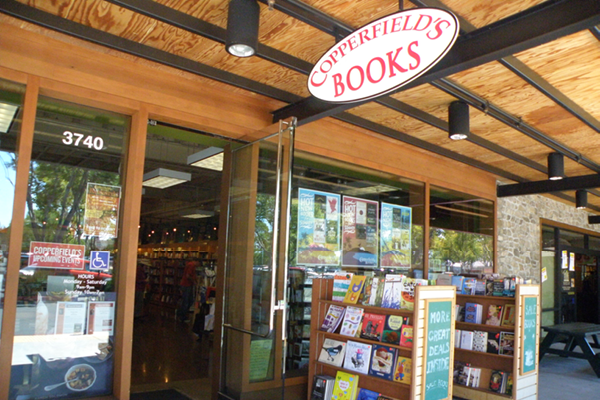










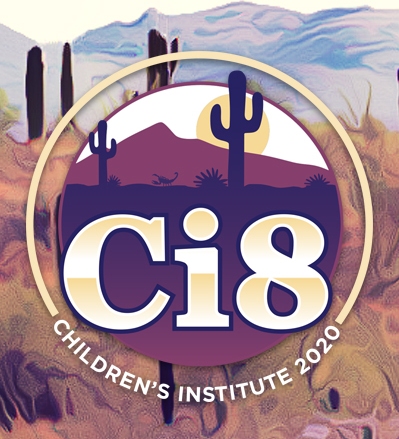

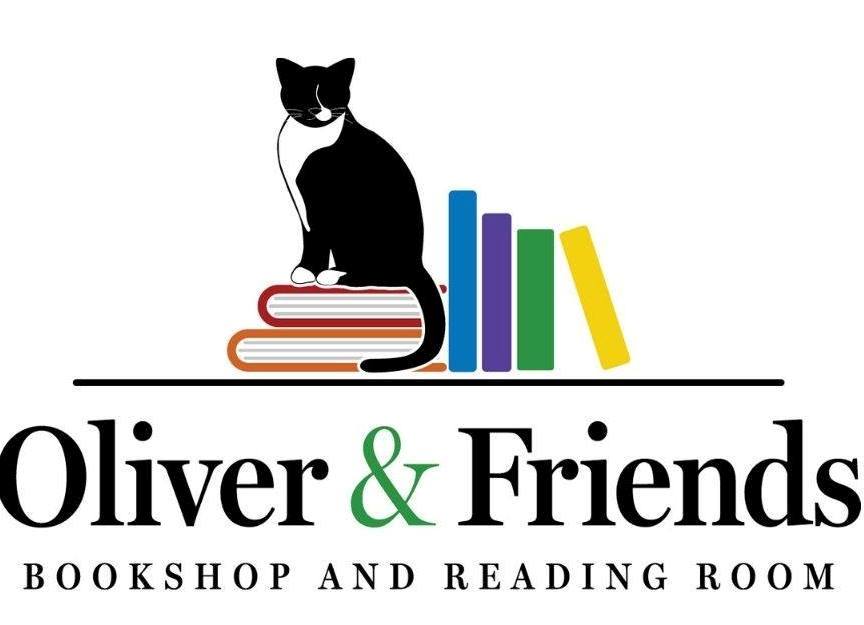 Oliver & Friends Bookshop & Reading Room
Oliver & Friends Bookshop & Reading Room

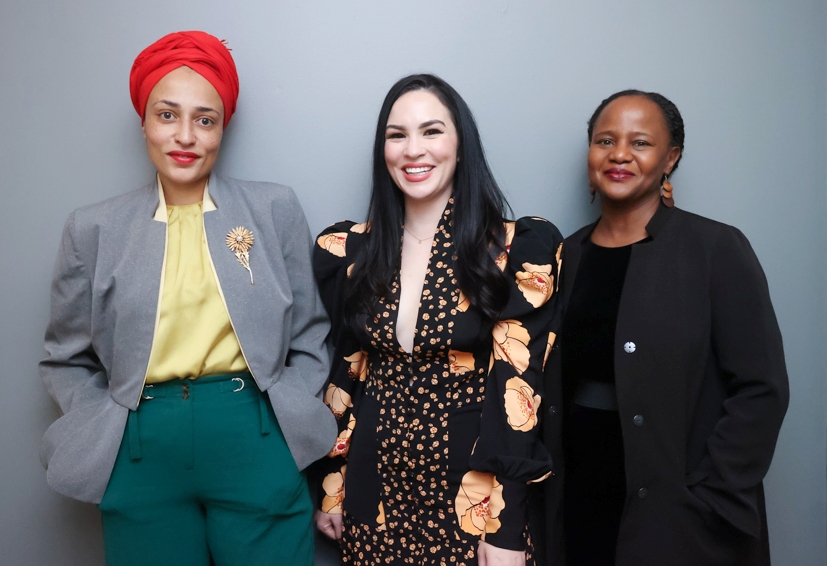
 Posted on Facebook by bestselling author Kate DiCamillo: "I stopped by
Posted on Facebook by bestselling author Kate DiCamillo: "I stopped by 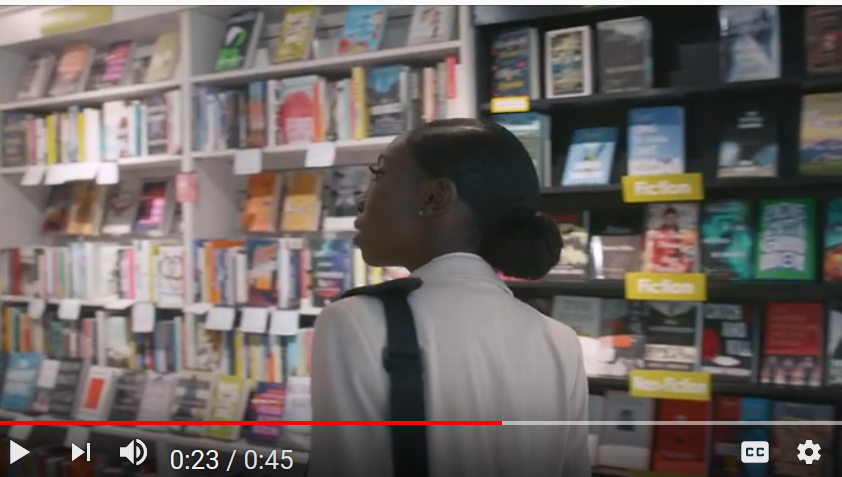
 Tiny Dino Worlds: Create Your Own Prehistoric Habitats
Tiny Dino Worlds: Create Your Own Prehistoric Habitats

 Book you hid from your parents:
Book you hid from your parents: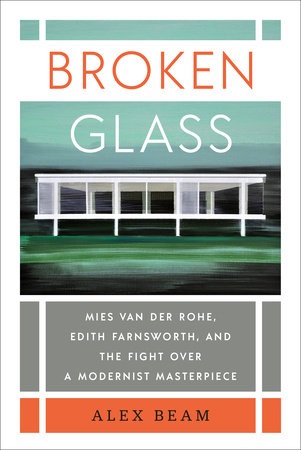 In 1947, Edith Farnsworth, a Chicago physician and art collector, wrote of German-born architect Ludwig Mies van der Rohe: "Those of us who know him intimately know him to be a great man, a great teacher, and a great architect." A few years later, Farnsworth was eating her words. Alex Beam has titled his scintillating look at Mies and Farnsworth's public feud Broken Glass: Mies van der Rohe, Edith Farnsworth, and the Fight over a Modernist Masterpiece, although the name of his earlier book
In 1947, Edith Farnsworth, a Chicago physician and art collector, wrote of German-born architect Ludwig Mies van der Rohe: "Those of us who know him intimately know him to be a great man, a great teacher, and a great architect." A few years later, Farnsworth was eating her words. Alex Beam has titled his scintillating look at Mies and Farnsworth's public feud Broken Glass: Mies van der Rohe, Edith Farnsworth, and the Fight over a Modernist Masterpiece, although the name of his earlier book 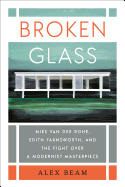
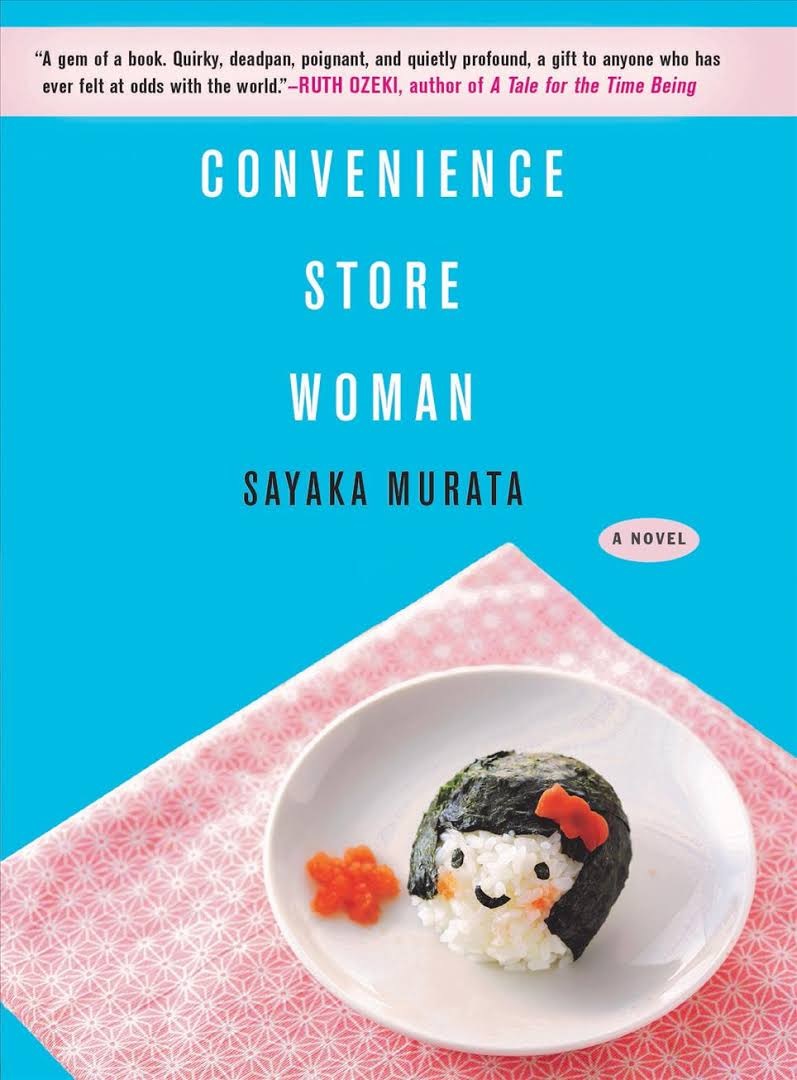 Howarth cited one of my favorite novels in recent years, Sayaka Murata's
Howarth cited one of my favorite novels in recent years, Sayaka Murata's 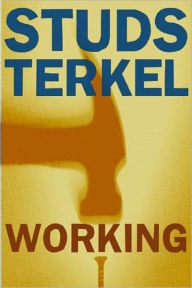 One of my favorite stories from Studs Terkel's classic book Working is of Babe Secoli, the supermarket checker who says, "It's hard work, but I like it. This is my life.... I'm just movin'--the hips, the hand, and the register, the hips, the hand, and the register.... You just keep goin', one, two, one, two. If you've got that rhythm, you're a fast checker. Your feet are flat on the floor and you're turning your head back and forth.... If somebody interrupts to ask me the price, I'll answer while I'm movin'. Like playin' a piano."
One of my favorite stories from Studs Terkel's classic book Working is of Babe Secoli, the supermarket checker who says, "It's hard work, but I like it. This is my life.... I'm just movin'--the hips, the hand, and the register, the hips, the hand, and the register.... You just keep goin', one, two, one, two. If you've got that rhythm, you're a fast checker. Your feet are flat on the floor and you're turning your head back and forth.... If somebody interrupts to ask me the price, I'll answer while I'm movin'. Like playin' a piano."